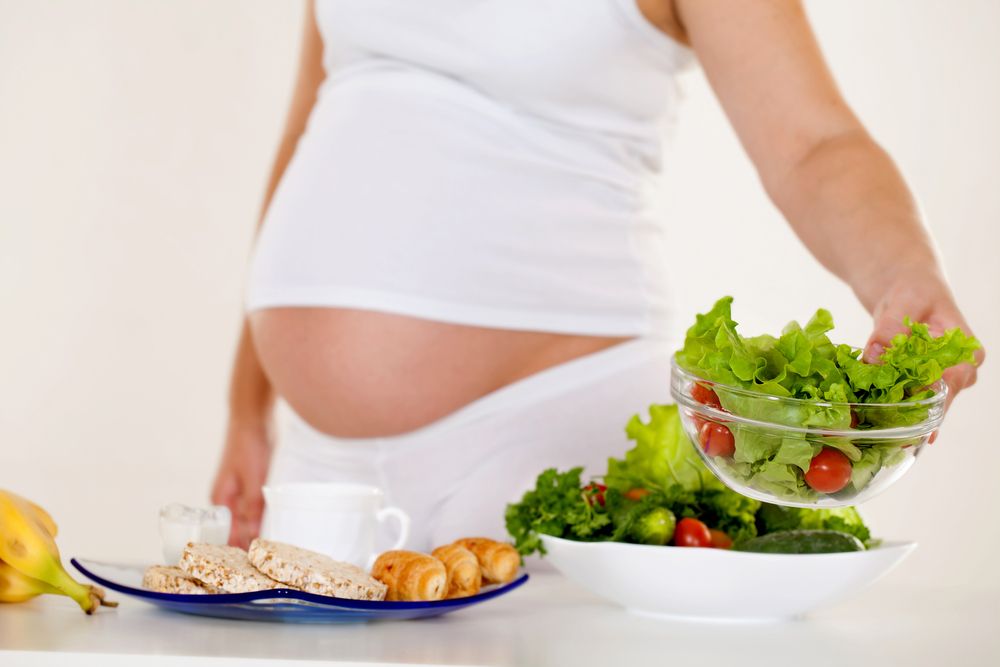Pregnancy is a beautiful journey filled with anticipation, excitement, and change. One of the most important ways to support a healthy pregnancy—and ensure your baby’s optimal development—is through balanced, nutrient-rich nutrition. The food you eat not only fuels your own body but also provides the essential nutrients your baby needs to grow and thrive. This article will guide you through what to eat, what to avoid, and how to build a healthy pregnancy diet.
Why Nutrition Matters During Pregnancy
During pregnancy, your body undergoes significant changes to support the growth of a new life. Nutrients like folic acid, iron, calcium, protein, and omega-3 fatty acids become even more critical. A healthy diet during pregnancy can:
- Reduce the risk of birth defects
- Support fetal brain and organ development
- Minimize pregnancy complications
- Improve maternal energy and well-being
- Help ensure a healthy birth weight
What to Eat During Pregnancy
Here’s a breakdown of key nutrients and the foods rich in them:
1. Folic Acid (Folate)
Essential for preventing neural tube defects and supporting early fetal development.
Sources: Leafy greens (spinach, kale), citrus fruits, beans, fortified cereals, lentils.
2. Iron
Needed to make more blood to supply oxygen to the baby.
Sources: Lean meats, poultry, spinach, iron-fortified cereals, beans, lentils.
Tip: Pair with vitamin C (like oranges or tomatoes) to improve absorption.
3. Calcium
Helps build your baby’s bones and teeth.
Sources: Milk, yogurt, cheese, fortified plant-based milk, broccoli, tofu.
4. Protein
Crucial for tissue development and growth.
Sources: Eggs, lean meat, poultry, fish, dairy, legumes, nuts, seeds.
5. Omega-3 Fatty Acids (Especially DHA)
Important for brain and eye development.
Sources: Fatty fish (like salmon), flaxseeds, chia seeds, walnuts, DHA-fortified eggs.
6. Fiber
Prevents constipation, which is common during pregnancy.
Sources: Whole grains, fruits, vegetables, legumes, and nuts.
7. Vitamin D
Supports bone health and immune function.
Sources: Fortified milk, egg yolks, fatty fish, and sunlight exposure.
8. Water
Staying hydrated helps with digestion, amniotic fluid production, and nutrient transport.
Tip: Aim for 8–12 cups (64–96 ounces) of water per day.
Foods to Limit or Avoid During Pregnancy
While many foods are beneficial, some can pose risks to both mom and baby. Here’s what to be cautious about:
1. High-Mercury Fish
Excessive mercury can harm your baby’s developing nervous system.
Avoid: Shark, swordfish, king mackerel, tilefish.
Safer options: Salmon, sardines, tilapia, cod (2–3 servings per week).
2. Undercooked or Raw Foods
These can harbor harmful bacteria or parasites.
Avoid: Raw fish (like sushi), undercooked eggs or meat, unpasteurized dairy.
3. Processed and Deli Meats
Risk of listeria contamination.
Tip: Reheat deli meats and hot dogs until steaming.
4. Excess Caffeine
High caffeine intake may increase the risk of miscarriage or low birth weight.
Limit: No more than 200 mg/day (about one 12-oz cup of coffee).
5. Alcohol
No amount of alcohol is safe during pregnancy. It can lead to fetal alcohol spectrum disorders (FASDs).
6. Unwashed Produce
May carry toxoplasma or other harmful pathogens.
Tip: Wash all fruits and vegetables thoroughly before eating.
Sample Daily Pregnancy Meal Plan
Here’s a simple meal plan to provide balanced nutrition throughout the day:
Breakfast:
- Whole-grain toast with avocado
- Scrambled eggs
- A glass of fortified orange juice
Snack:
- Greek yogurt with berries and a drizzle of honey
Lunch:
- Grilled chicken salad with mixed greens, tomatoes, carrots, and vinaigrette
- A whole-grain roll
Snack:
- Hummus with sliced cucumber and whole-grain crackers
Dinner:
- Baked salmon with brown rice
- Steamed broccoli and roasted sweet potatoes
Evening Snack:
- A banana and a handful of almonds
Important Pregnancy Nutrition Tips
- Eat Small, Frequent Meals: Helps manage nausea and keeps energy levels steady.
- Listen to Your Body: Cravings can be a sign of nutrient deficiencies—but choose healthy versions.
- Take a Prenatal Vitamin: To supplement key nutrients like folic acid, iron, and DHA.
- Monitor Weight Gain: Gaining too little or too much can increase risks for both baby and mom. Consult your healthcare provider for guidelines.
When to Consult a Nutritionist or Doctor
You should seek professional advice if you:
- Have dietary restrictions (vegetarian, vegan, gluten-free)
- Struggle with severe nausea (hyperemesis gravidarum)
- Have gestational diabetes or high blood pressure
- Are concerned about weight gain or loss
Your doctor or a registered dietitian can help you develop a tailored nutrition plan for a healthy pregnancy.
FAQs About Nutrition During Pregnancy
1. Can I be vegetarian or vegan while pregnant?
Yes, but it’s important to get enough protein, iron, calcium, and B12 through food or supplements.
2. Are prenatal vitamins necessary?
Yes. They help fill in nutritional gaps and ensure your baby gets essential nutrients like folic acid and iron.
3. Can I eat seafood during pregnancy?
Yes, but stick to low-mercury options like salmon, shrimp, and sardines.
4. Is it normal to have cravings?
Yes. Cravings are common, but try to choose healthy alternatives when possible.
5. What should I do if I have morning sickness?
Eat small meals, avoid strong odors, and stay hydrated. Ginger and vitamin B6 may also help.
6. How much weight should I gain during pregnancy?
It depends on your pre-pregnancy weight. Your doctor can provide specific recommendations.
7. Can I drink herbal tea?
Some are safe, while others are not recommended. Always consult your doctor before consuming herbal products.
8. Is it safe to eat spicy food while pregnant?
Generally yes, though it may cause heartburn or indigestion in some women.
Final Thoughts
Eating well during pregnancy is one of the most loving things you can do for your baby—and for yourself. A balanced, nutrient-rich diet lays the foundation for healthy growth, brain development, and a smoother pregnancy. With smart food choices, plenty of hydration, and guidance from healthcare professionals, you can nourish both body and baby throughout every trimester.









